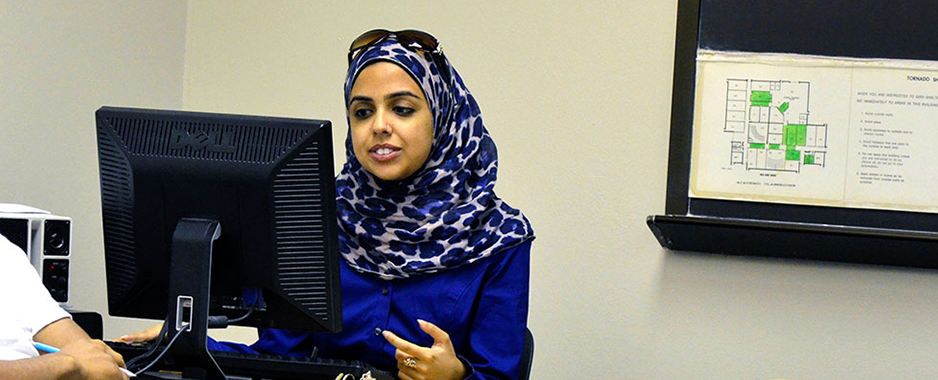By Samantha Sutton/reporter
What doesn’t kill students only makes them stronger, health specialist Melissa Evans told SE students Sept. 10.
Evans, a health education teacher, drew inspiration on how to keep students’ brains healthy from her father who died from dementia five years ago. Her father’s death motivated her to find ways to prevent this from happening to others.
Evans began her presentation by playing a song and asking everyone to get up and follow her sequence of aerobic dance moves, saying exercise helps get the brain up and going.
“Brains don’t control us. We control our brains!” she said.
Evans also said physical activity has a positive effect on stress management. College students have one of the highest stress populations in the U.S., so finding ways to help them decrease mental overload is important.
What people eat is just as important, Evans said. Brains need glucose (food) and oxygen (water) to operate. She said skipping meals and not drinking enough water can cause a person to feel sluggish and hazy.
Evans said coffee is bad news.
“While your favorite Starbucks drink can increase alertness, be warned,” she said. “Too much caffeine can cause a severe crash later on in the day.”
Evans said that even energy drinks can be misleading. She said that none of the beverages that claim to improve mental performance have been proved to do so. The teacher promised sticking with natural food and drink is better not only for the brain, but the body as well.
Finally, Evans revealed that challenging oneself is a key factor in improving brain health.
“The brain is a muscle just like the rest of our bodies. In order to improve it, we have to put it to work,” she said.
Evans recommended taking harder college courses if students consider them too easy. She said it is a waste of a brain’s time if one isn’t pushing its limits.
Brains need relaxation too. She said that getting at least eight hours of sleep can help the brain get the rest time it needs. Evans said watching television was the top way to allow the brain free time.

























